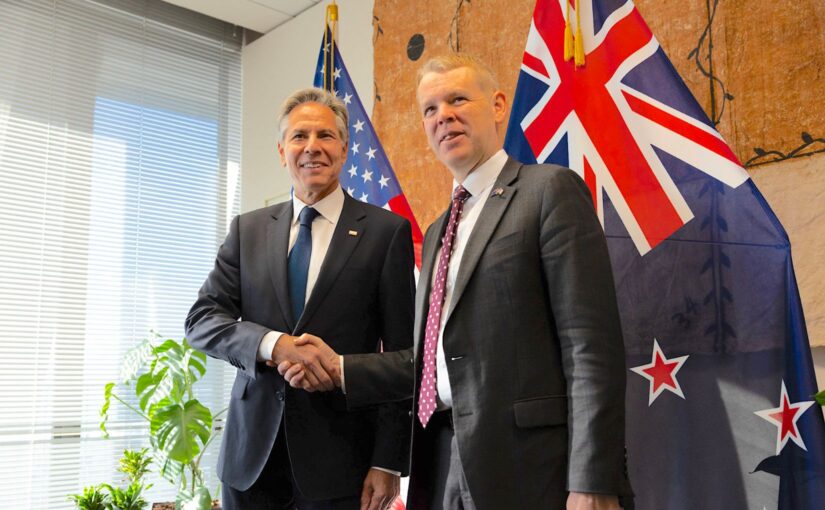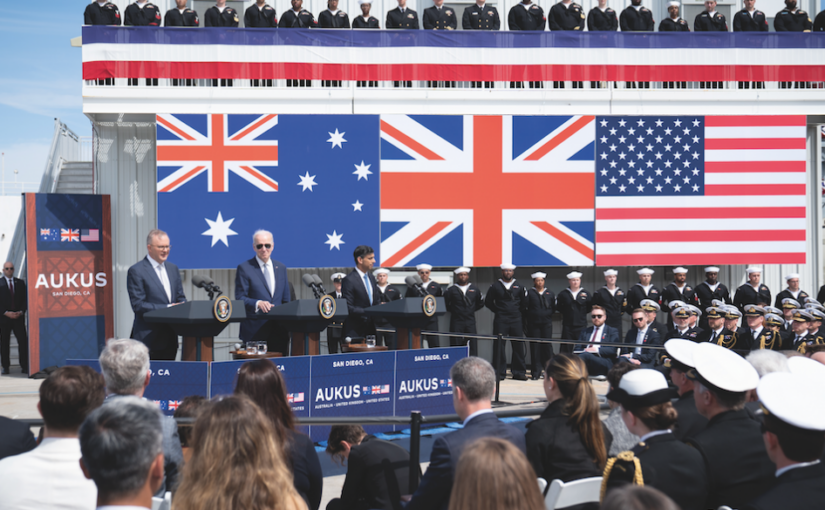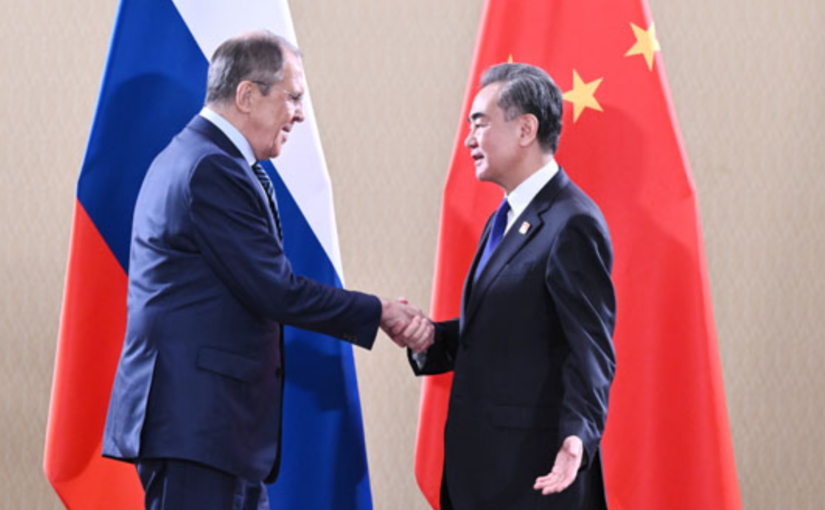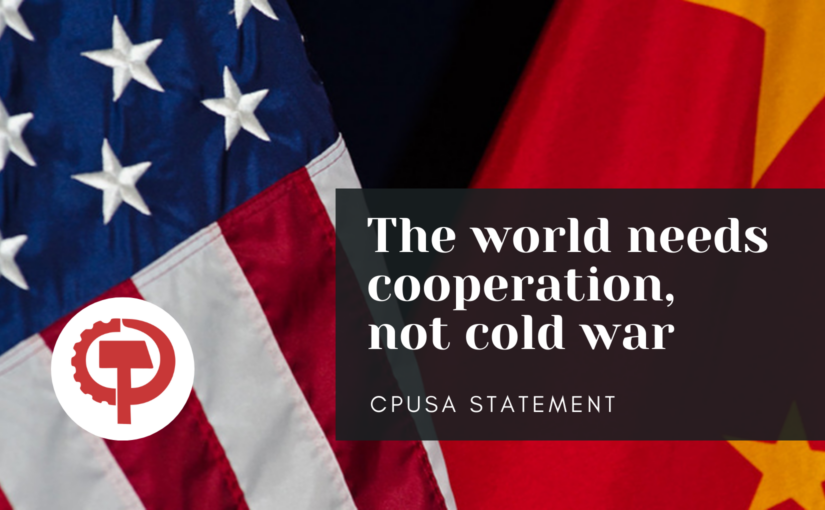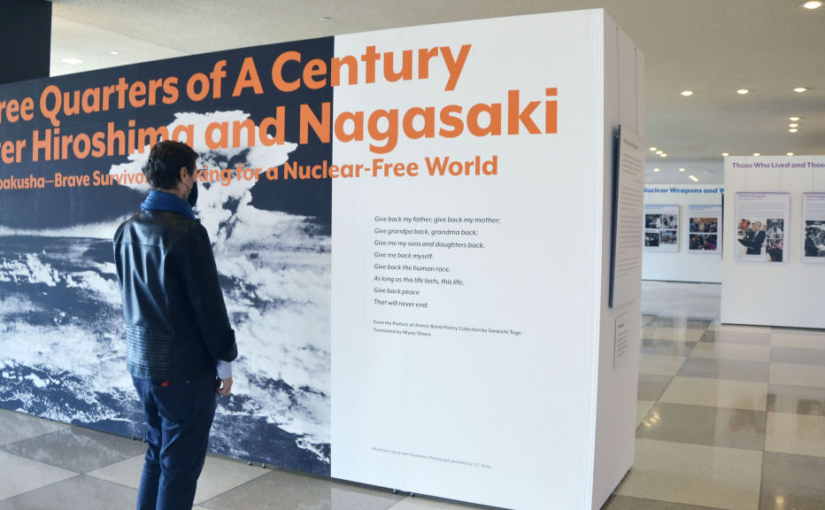The following text is of a speech by Sophie Bolt, incoming general secretary of the Campaign for Nuclear Disarmament (CND), at the World We Want conference held in London on 12 October 2024.
Sophie’s speech outlines the current geopolitical situation, in particular the risk of nuclear war, and the need for a mass movement to demand peace and disarmament. She observes that US global dominance is the number one obstacle in the way of a “peaceful, just, sustainable and nuclear-free world”. While many may have hoped that the end of the Cold War would have brought about a more peaceful world, the US developed an aggressive new strategy – the “Wolfowitz doctrine” – which aimed to prevent the rise of any rival power that could challenge US hegemony. “Using its political, economic and military might, the US has attempted to force countries to subordinate their economic and political interests to it. A carrot-and-stick approach, in which the US nuclear arsenal is the ultimate stick.”
Sophie notes that the global economic and political situation is changing, particularly with the emergence of China and the rise of BRICS. In a state of relative decline, the US is increasingly resorting to the use of military power to maintain and reassert its hegemony. “This is the key driver of global tensions which is pushing the world to the brink of destruction.”
The speech calls on the peace movement to mobilise against the US-led drive to war – including the New Cold War on China – and to support peace initiatives emerging from the Global South. For example, Brazil and China are coordinating towards peace talks between Russia and Ukraine; meanwhile South Africa has been blazing a trail on international legal action against Israel for its war crimes in Gaza.
Sophie concludes:
We must take hope and courage from these significant, progressive developments taking place across the global South. And the determined, committed movements that are growing here in the global North.
The text of the speech was first published in the Morning Star on 14 October 2024.
So, the world we want to see! For the Campaign for Nuclear Disarmament, we want a peaceful, just, sustainable and nuclear-free world. But, given where we currently are, how can we secure such a world?
From CND’s perspective, central to this question is overcoming the major obstacle — which is US global dominance.
Since the US atomic bombing of Hiroshima and Nagasaki in 1945, the US has pursued a military doctrine that allows no rival economic or military power to emerge that can challenge it.
Far from ending the second world war, the dropping of these nuclear bombs was a ruthless, barbaric act to ensure the US emerged as the major superpower. It was a warning to every other country.
The bombing unleashed the nuclear arms race and started the cold war, taking the world to the brink of nuclear annihilation.
Following the dissolution of the Soviet Union in the early 1990s, this doctrine was explicitly formalised, coined the “Wolfowitz doctrine,” after Paul Wolfowitz, under-secretary of defence to Dick Cheney. This is why — rather than disbanding Nato — the US aggressively expanded the nuclear-armed alliance right up to Russia’s borders.
Using its political, economic and military might, the US has attempted to force countries to subordinate their economic and political interests to it. A carrot-and-stick approach, in which the US nuclear arsenal is the ultimate stick.
But today, China’s economic growth has overtaken the US, and it is now the biggest economy in the world. Economic co-operation between Brazil, Russia, India, China and South Africa — known as Brics — means these combined economies are larger than the G7. And this economic co-operation is growing, with Iran, Egypt, Ethiopia and the United Arab Emirates joining this year.
Continue reading Building a peaceful, nuclear-free tomorrow
